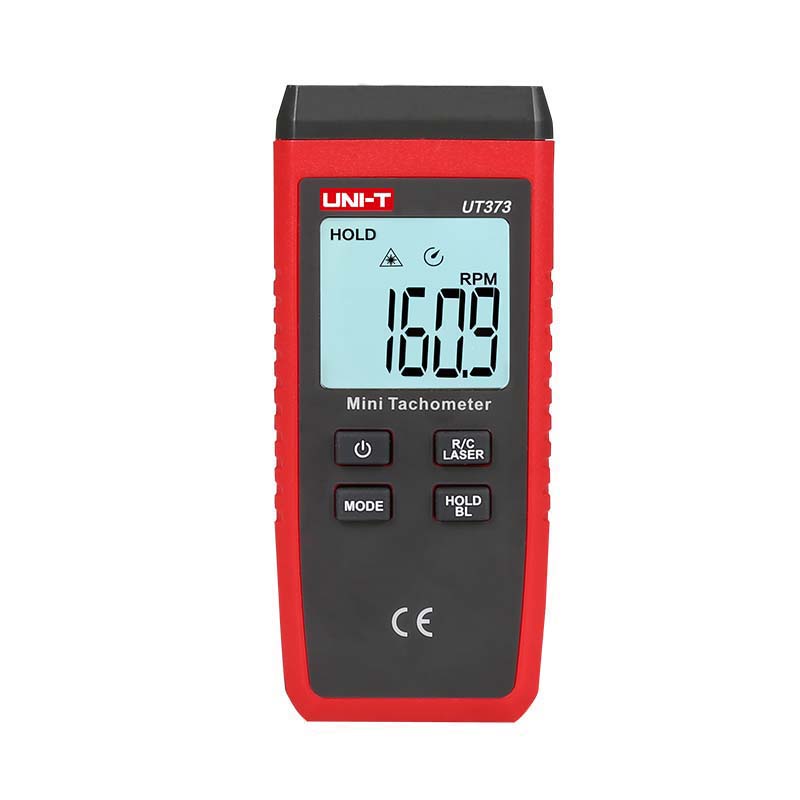RPM Meters
RPM meters - Precise and reliable measurement for your applications
Introduction to RPM meters
RPM meters are essential instruments for measuring the speed of motors, machines and other rotating components. These devices provide you with precise and reliable measurements, which are extremely important for a wide range of industrial and scientific applications. Be it in the automotive industry, aviation or automation technology - RPM meters contribute to the optimization and monitoring of processes.
Function and areas of application of RPM meters
RPM meters measure the number of revolutions per minute (rpm) of rotating parts. This is usually done using optical or magnetic sensors that detect the movement of the object to be measured and convert it into electrical signals. RPM meters are used in a variety of ways: they are used in the monitoring of engines and turbines, in the quality control of manufacturing processes and in research and development to test the performance of new technologies.
RPM meters are used in a variety of ways: they are used in the monitoring of engines and turbines, in the quality control of manufacturing processes and in research and development to test the performance of new technologies.
Types of RPM meters
There are different types of RPM meters, each with a different design and specific measurement requirements. Mechanical RPM meters, for example, work with drag springs and torques, while electronic RPM meters are usually based on optical or magnetic principles. There are also portable hand-held devices and permanently installed systems that are integrated into machines. The choice of the right device depends on the specific requirements of your application.
Advantages of using RPM meters
RPM meters offer a number of advantages that make them indispensable tools in industry. They provide you with precise and reliable data that you can use to optimize and monitor machines and processes. RPM meters also help to improve safety by detecting potential malfunctions at an early stage. Another advantage is the increase in efficiency, as precisely measured speeds are essential parameters for maximizing performance and minimizing wear.
Important purchasing criteria for RPM meters
When buying a RPM meter, you should pay attention to a few key features. Accuracy and resolution are decisive factors that directly influence the quality of the measurements. Equally important are the measuring ranges covered by the device and the type of power supply. The user-friendliness and robustness of the device also play a role, especially if it is to be used in harsh industrial environments. Additional functions such as data recording and transmission can also be of great importance.
Applications in various industries
The industries in which RPM meters are used are extremely diverse. In the automotive industry, for example, they are used to monitor and optimize the performance and efficiency of engines. In aviation technology, they are used to check and maintain engines and propellers. RPM meters are also essential in the manufacturing industry to control the speed of production lines and machine components. In research and development, they support the validation of new technologies and processes.
Care and maintenance of RPM meters
Regular care and maintenance of your RPM meters is crucial to ensure their longevity and reliability. Cleaning the sensors and regular calibration are basic measures that you should carry out. Storage and handling in suitable environments also help to extend the service life.
Technological developments and future prospects
Technological developments in the field of RPM meters are constantly advancing. Modern devices are characterized by increasingly higher accuracies, improved sensor technology and extended communication options. The integration of RPM meters into Industry 4.0 applications and the Internet of Things (IoT) opens up new perspectives for real-time monitoring and predictive maintenance of machines and systems. The future of RPM meters thus promises even more precise and versatile applications.
Conclusion
RPM meters are indispensable tools for numerous industries and applications. They offer precise and reliable measurements that contribute to the optimization, monitoring and safety of machines and processes. When selecting a suitable device, you should pay attention to accuracy, measuring ranges and additional functions in order to achieve optimum results. Regular maintenance and technological advancements ensure that the performance of your RPM meters is maintained over the long term, allowing you to benefit from their many advantages.

